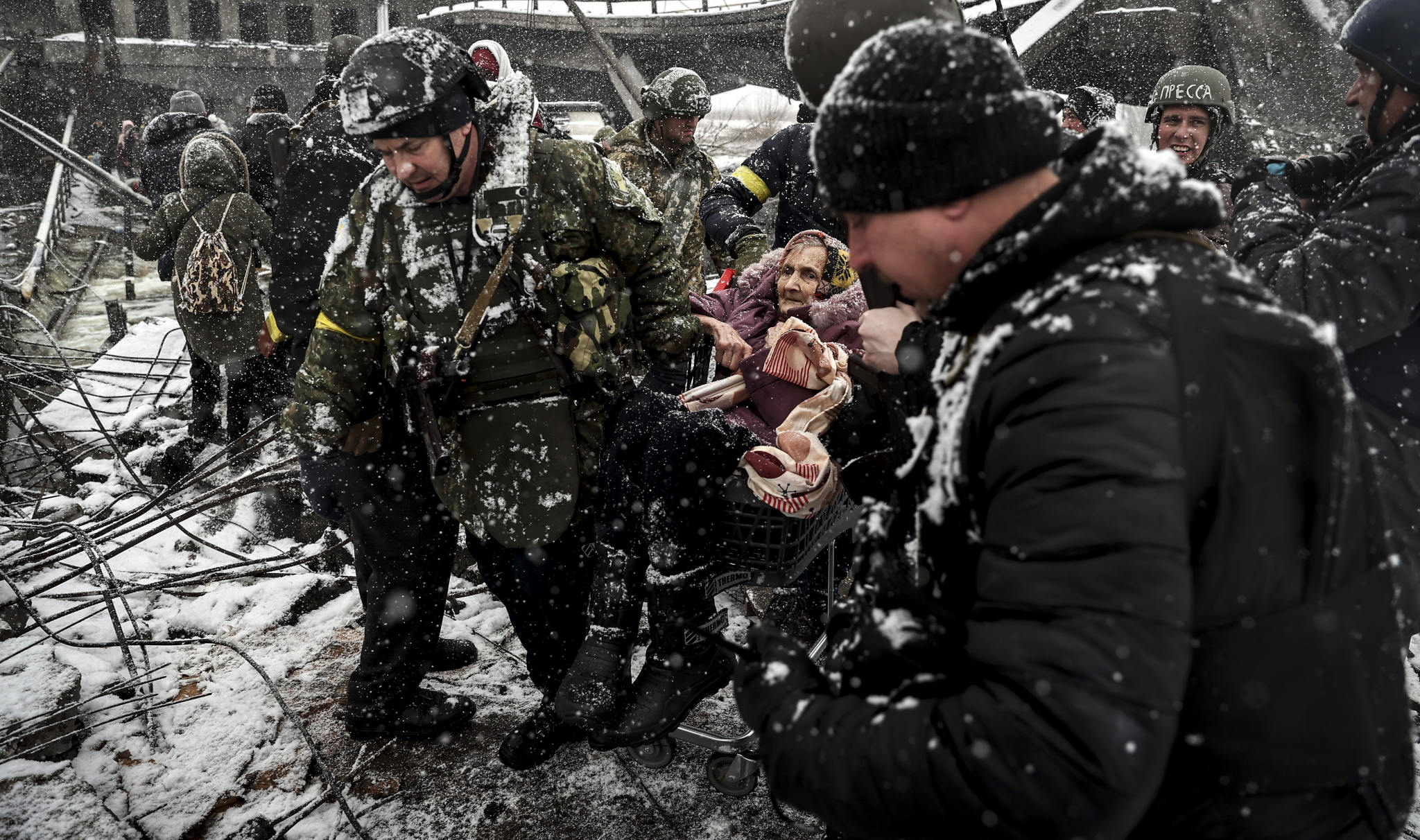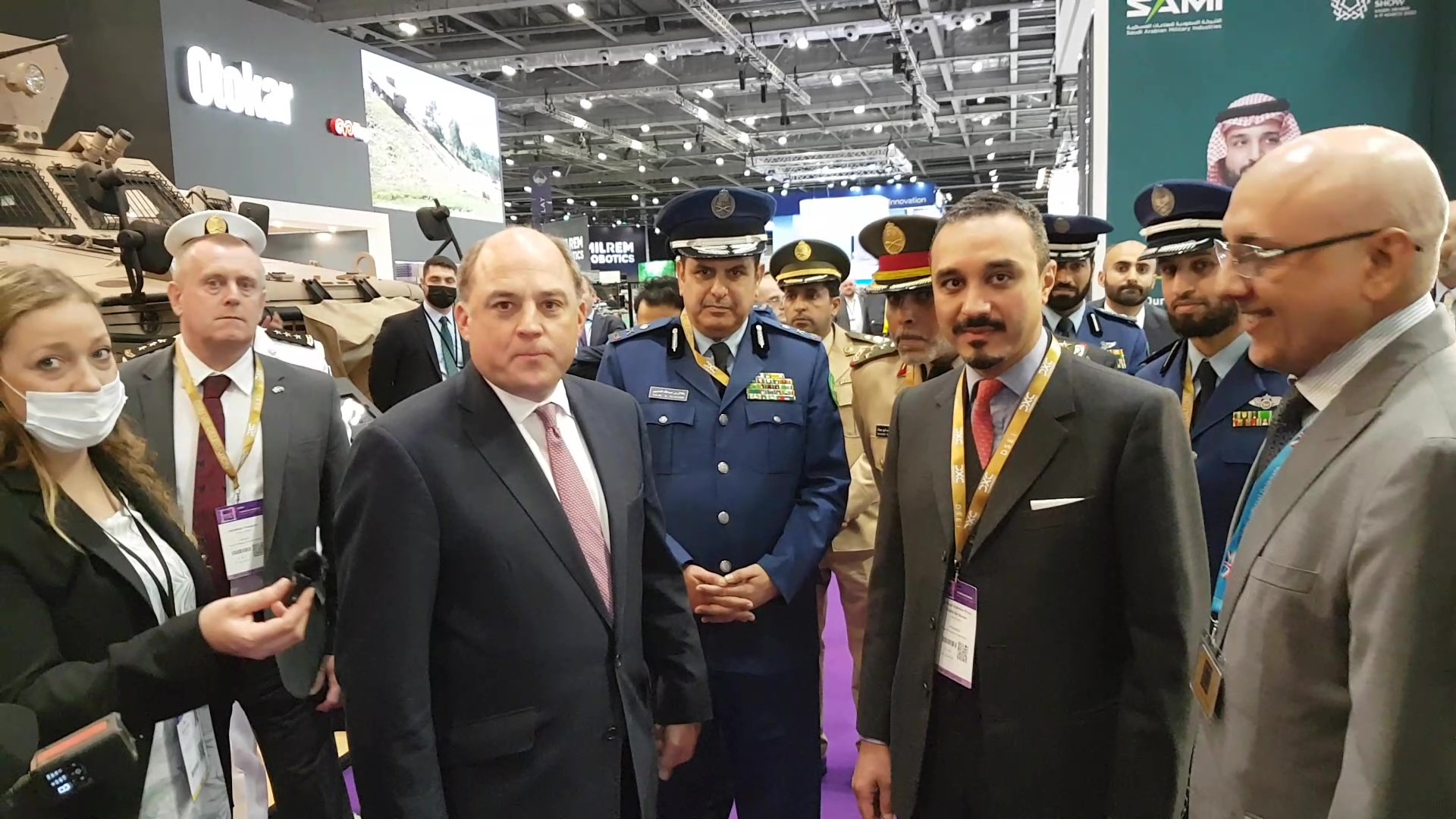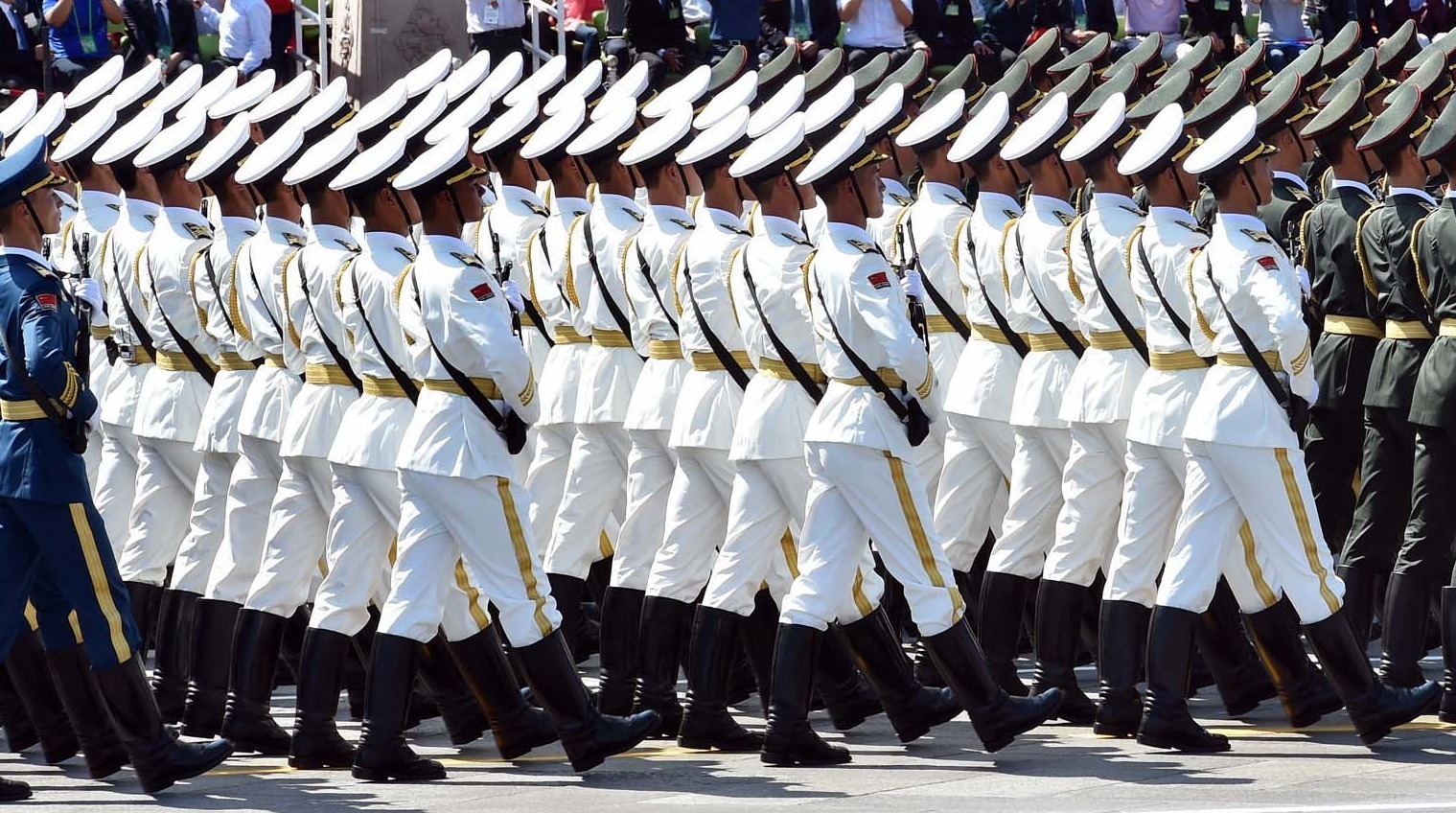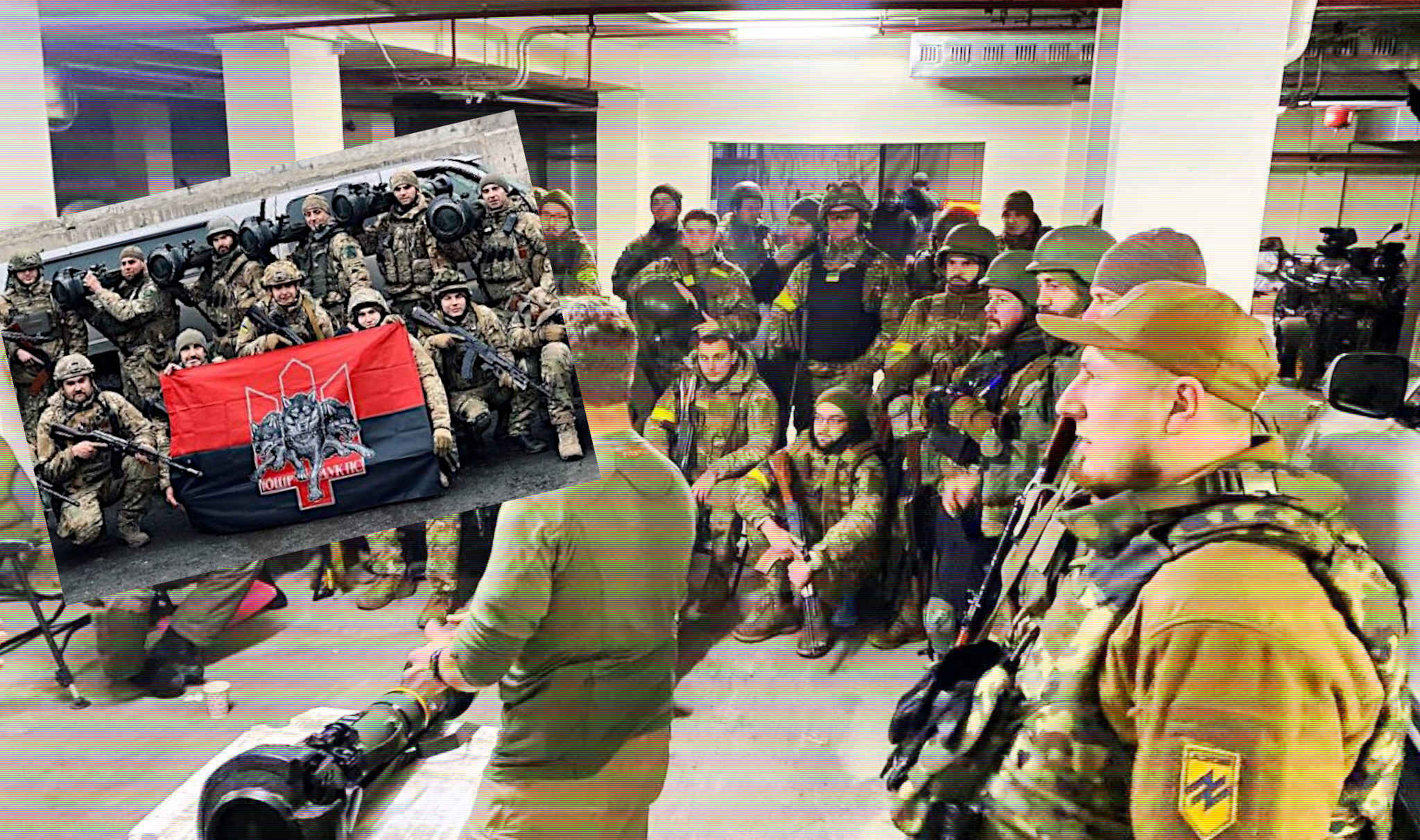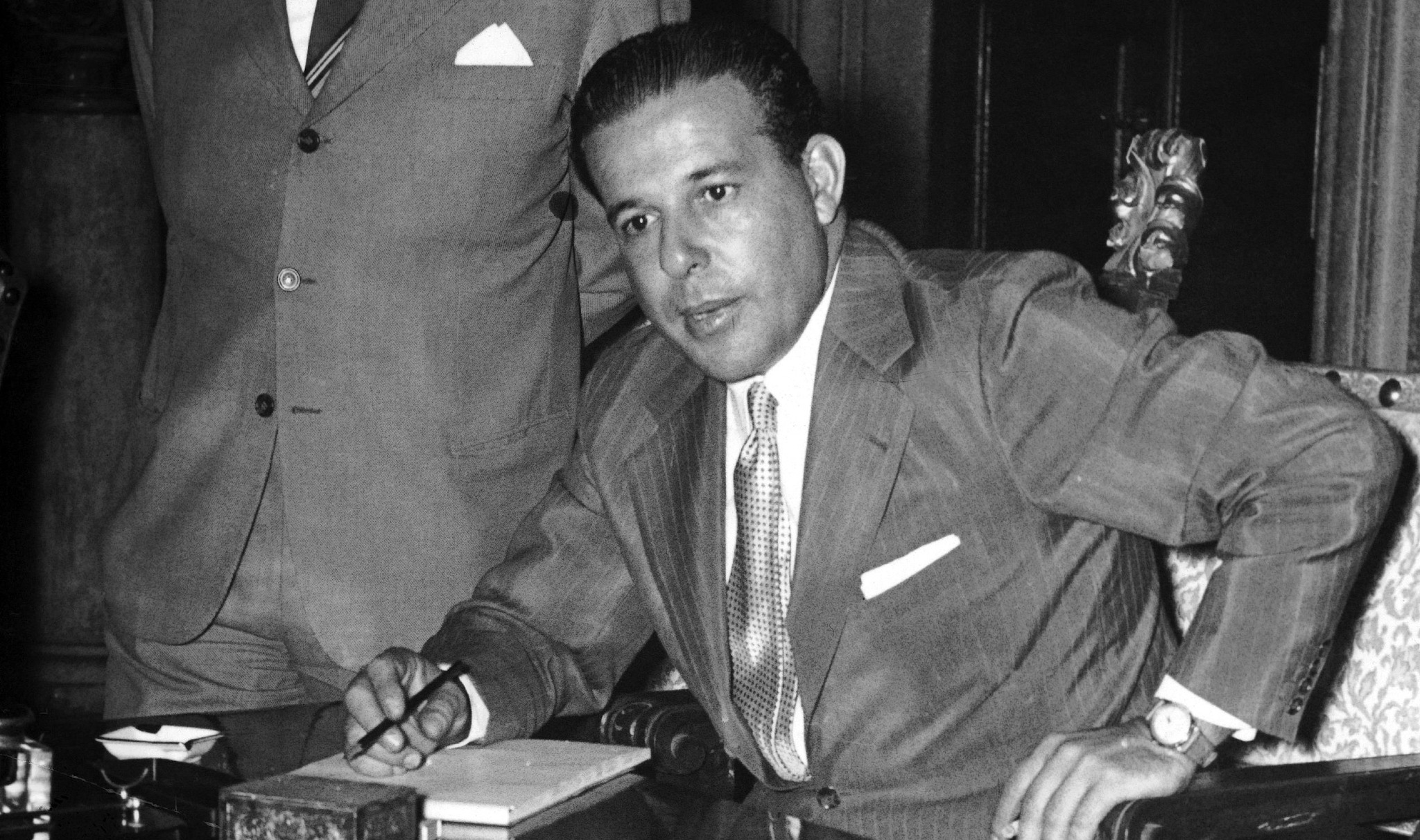“It’s time to make Mother Russia bleed for her crimes. We’ve done it before. We can do it again”, former US State Department official James Bruno, who worked on Afghanistan in the 1980s, recently declared.
Bruno was referring to the massive covert operation the US and UK undertook in Afghanistan after the Soviet Union invaded in 1979, supporting right-wing religious fanatics known as the mujahideen.
Hillary Clinton has drawn the same parallel, proudly telling MSNBC this month: “A very motivated, and then funded, and armed insurgency basically drove the Russians out of Afghanistan.”
This operation was part of a deepening of the Cold War in the 1980s, which escalated the arms race between East and West and heightened the risk of a nuclear confrontation.
The US then elected right-wing president Ronald Reagan, who invoked the Soviet ‘evil empire’ to further prop up pro-Western dictatorships and initiate more covert wars in Africa, Asia and Latin America, supposedly to check Moscow’s influence.
Britain under Margaret Thatcher played the dutiful lieutenant role, offering strong diplomatic, and often military and intelligence support to Reagan, whose main aim was to reassert US global power.
The reality was that although the Cold War confrontation with Soviet communism was real in some places, it became the ready-made excuse – a cover – for all sorts of things Western elites wanted to get away with anyway.
And it ushered in a new era of instability, terrorism, and impoverishment in the developing world.
Although some say Putin’s war in Ukraine could soon end with a humiliating Russian defeat and a palace coup in Moscow, foreign secretary Liz Truss, echoing various other analysts, has said “This is not going to be, I fear, over quickly.” She added: “We need to be prepared for a very long haul.”
If this is indeed the start of a new Cold War, how much history is about to repeat itself? There are plenty of worrying parallels; eight stand out.
1. Spending boon
Putin’s war, just like Brezhnev’s in Afghanistan, is a boon for the Anglo-American military-industrial complex. Arms corporations are seeing their share prices rise. UK arms corporations are already winning new contracts in eastern Europe hot on the heels of Russia’s invasion.
Germany has announced a significant increase in military spending. Although Nato already spends 17 times more on the military than Russia, the push will be to raise this even more.
The UK is already a highly militarised country, with dozens of military bases at home, and over 140 overseas. Arms corporations can determine national policy, influenced by the revolving door of personnel between government and arms firms. The drive will be for this militarisation to deepen.
2. China belligerents
Tobias Ellwood, the MP who chairs parliament’s defence committee, has said: “If Putin gets his way, where will he go to next and where might other dictators advance their own agendas? Specifically China.”
Hawkish elements on both sides of the Atlantic are already preparing for a war with China. They may well believe the period of US/European world hegemony, which has lasted for 500 years, is over unless China can be curbed.
Needless to say, this more belligerent strategy could be disastrous, with notable flashpoints being over China’s ambitions concerning Taiwan and disputed islands in the South China Sea.
3. Risk of nuclear war
The stakes could hardly be higher, given Putin’s placing of Russia’s nuclear weapons on high alert and fighting around Ukrainian nuclear reactors. In the 1980s Cold War, the most dangerous period was in 1983, when the Soviet leadership apparently mistook a Nato training exercise, called Able Archer, for a possible nuclear attack.
The danger of miscalculation remains. Neither is it comforting to know that Nato has a nuclear first use policy. Nor that UK nuclear doctrine has recently changed to widen the number of targets for a British nuclear attack and to increase the number of its nuclear warheads.
4. Arming Ukrainians
There’s understandable enthusiasm now for giving Ukrainians equipment to defend themselves. But pledges from Western states’ to send arms – a process being coordinated by the UK – could easily spiral out of control.
Who will get these weapons? Could they produce an even more protracted war? If ever-more offensive equipment is provided, killing Russians, how will the Kremlin react?
To defeat the Soviets in Afganistan, the US and UK armed militant forces who soon turned into jihadists. In Syria, Western and Arab arms and training has prolonged the war and benefitted allies of al-Qaeda.
In Ukraine, there is a persistent far-right presence within the armed forces. We have already seen evidence that some UK-made rocket launchers have ended up in the arms of neo-Nazi groups such as the Azov regiment within Ukraine’s National Guard.
And what will happen to these weapons when the war is over? Will criminal gangs be able to collect them? Weapons vanishing from Ukrainian armouries was already a concern before Putin invaded.
5. Resistance movement
British defence minister James Heappey has reportedly spoken of promoting a resistance movement in Ukraine. Reagan loved talking of the Afghan mujahideen in these terms, calling them “freedom fighters”.
Will a Ukrainian resistance movement be dominated by democrats or hijacked by extremists? Precedents suggest the West might not much care. Whitehall has shown itself willing to support anyone on the ground in conflicts to do its bidding.
Britain’s facilitation of radicals from Manchester joining the fight against Gaddafi in the war in Libya in 2011 proved disastrous. Many went on to become terrorists, striking the UK and elsewhere in Europe, and they turned Libya into a safe haven for Islamic State.
There have long been reports that far right elements in the UK are being recruited to fight in Ukraine. And now we see reports of British ex-SAS soldiers going to the conflict.
Whitehall is sending mixed messages. Liz Truss has welcomed Britons going off to fight, though the head of the UK military has said it would be “unlawful and unhelpful”.
6. Power projection
Reagan, with Thatcher’s support, claimed his wars in Nicaragua, Cambodia and Angola were all about countering the Soviet threat. Washington and London can still easily work through their supportive media to justify new interventions around the world by invoking Russia or China as a lurking menace.
Moscow’s and Beijing’s influence in Africa could provoke still more Western military intervention on the continent. States who refuse to bow to Anglo-American imperialism, such as Venezuela and Cuba, will likely come under even greater pressure as hold-outs for backing Moscow.
UK elites are already using the ‘threat’ from China to regain the glory of an ‘East of Suez’ policy and a bigger navy to rule the waves.
7. Domestic disciplining
The previous Cold War gave us McCarthyism in the US and, in Britain, MI5 monitoring leftists and the BBC vetting its ‘journalists’. Anyone criticising Western power could be smeared as a Soviet stooge.
This was aided by official UK propaganda operations such as the Foreign Office’s Information Research Department, which was founded by the Atlee government after the Second World War.
We could be returning to this “you’re either with us or against us” propaganda. Witness Keir Starmer’s pledge to expel Labour members for criticising Nato – a classic Cold War disciplining mechanism.
Its partner is an hysterical Russophobia that is already gripping parts of the UK with all that is Russian at risk of being cancelled, whether there are links to the Kremlin or not.
8. Propaganda
Be in no doubt – we’re going to be subject to increasing messaging from the media about all the evils of our enemies in Moscow (and Beijing). Some of this won’t be difficult to produce, since much of it will be true.
But the UK media’s false portrayal of Putin’s war in Ukraine as being altogether different than the US/UK wars in Iraq or Libya is just a foretaste of what is to come. ‘Our’ crimes will continue to be absolved and ignored even as our leaders invoke the highest principles in countering official enemies.
A potential risk is when governments start talking about ‘countering disinformation’, which can easily slip into censorship or involve promoting their own disinformation.
Johnson’s government just confirmed it is setting up a new cross-Whitehall ‘Government Information Cell’ that will “set up to identify and counter Russian disinformation targeted at UK and international audiences.”
Positives?
What about the positives? Isn’t it possible the widespread condemnation around the world of Russian violations and war crimes in Ukraine will lead to a new era of upholding grand principles like the UN charter and international law?
Not a chance.The US and Britain are as much rogue states in many aspects of their foreign and military policies as Russia or China. Just as in the 1980s and since, it’s going to take protest movements to make the world’s great powers act responsibly, especially on arms control issues, and to avoid the calamities of the previous Cold War.
Also clear is that independent media is more vital than ever. The UK response to Russia going forward needs to be independently monitored and reported to expose and hold to account – where appropriate – Whitehall as well as the Kremlin.
A better-informed public, and a media system that serves the national interest, will likely be vital if we are to avoid a damaging new Cold War that might plunge the world into worse calamities than even the Ukrainians are currently enduring.

